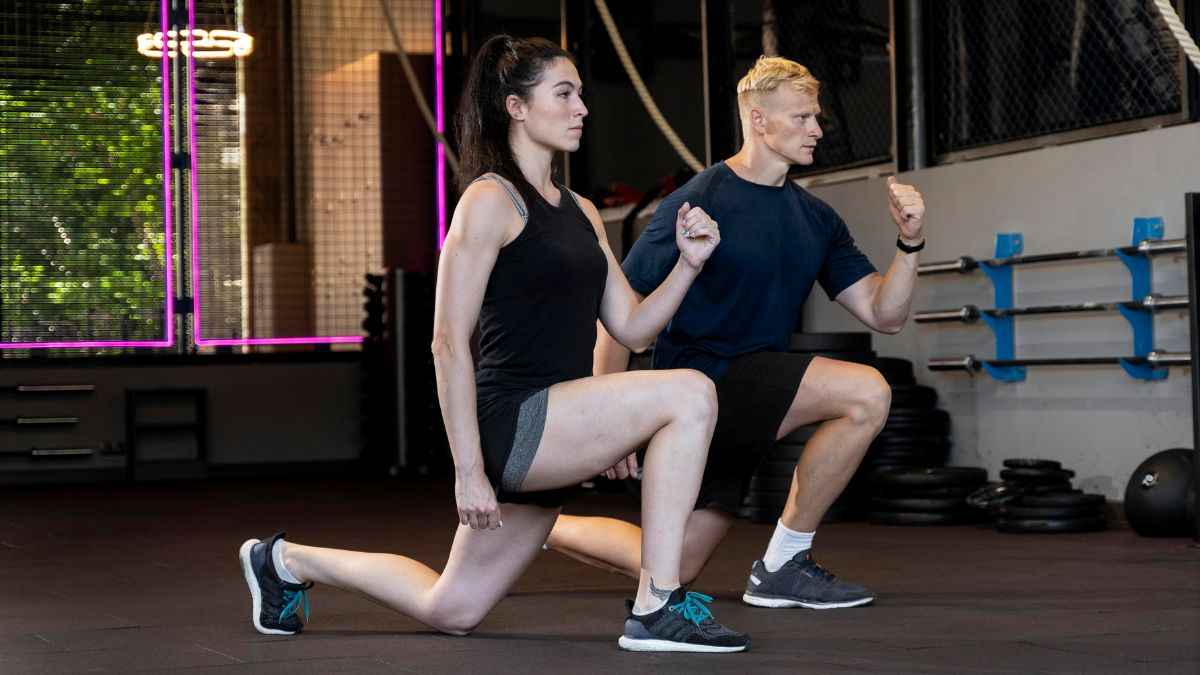Workout Can Boost Mental Health: Exercise is a universal language that speaks to individuals across various age groups, offering a holistic approach to well-being. The mental health benefits of regular workouts extend a healing touch to the young and old alike. Exercise’s profoundly positive effects on young individuals’ mental health, however, are particularly noteworthy. In the dynamic phase of youth, where the demands of academia, work, and social pressures converge, the significance of workouts has become a crucial component for cultivating resilience and fostering positive mental health. This article unravels the intricate tapestry of how workouts shape the mental landscape of young adults, exploring the unique impacts that physical activity brings to this vibrant stage of life.
The Endorphin Surge: A Natural Mood Booster
Engaging in regular physical activity triggers the release of endorphins, often referred to as the body’s natural mood boosters. These neurotransmitters interact with receptors in the brain, reducing the pain’s perception and creating a positive, euphoric feeling. Workout Can Boost Mental Health. For young adults navigating the complexities of their formative years, the endorphin surge from workouts can serve as a powerful antidote to stress and mood fluctuations.
“The body releases endorphins, which serve as the natural mood enhancers, after intense physical exertion, triggering the Endorphin Surge—an intriguing physiological phenomenon. This endorphin rush produces a strong sense of happiness and well-being to introduce a potent pain reducer.
When the body exercises, whether it is with strenuous workouts or stimulating pursuits, the endorphin rush transforms into a healing cascade that lowers stress and improves mental acuity. Acknowledged as nature’s mechanism for elevating mood, the Endorphin Surge promotes a happy mental attitude to introduce a healthier physical state, making it a desirable experience for those who want to develop their mental and physical health.
Stress Reduction and Cortisol Regulation
Young adulthood is often synonymous with increased stress due to academic pressures and burgeoning responsibilities. Regular exercise acts as a stress buster by regulating cortisol levels, the hormone associated with stress. Workout Can Boost Mental Health. This regulation provides young adults with a tangible tool to manage and mitigate the impact of daily stressors, fostering mental resilience.
Stress Reduction
In holistic well-being, stress reduction and cortisol regulation play pivotal roles in maintaining a harmonious balance within the body. Stress, a common occurrence in contemporary life, causes the body to generate the hormone cortisol, a hormone associated with the body’s fight-or-flight response.
Nonetheless, accelerated may control cortisol by implementing stress-reduction strategies, including mindfulness exercises, meditation, and enough sleep. improve your sleep every night. Making these thoughtful decisions can help you reduce stress and pave the way for a more balanced and fulfilling life.
Cognitive Enhancement: Sharpening the Young Mind
Exercise results in improved cognitive function and mental sharpness. For young adults juggling academic pursuits, workouts become a strategic tool for optimizing cognitive performance.
Embracing advancements in neuroscience, individuals explore diverse approaches, from nootropic supplements to brain-training exercises.
Sleep Quality Improvement
Quality sleep is paramount for mental health, yet it often eludes the restless minds of young adults. Regular exercise contributes to better sleep patterns, offering a natural remedy for those grappling with erratic sleep schedules. Enhanced sleep quality, in turn, nurtures emotional stability and overall mental well-being.
In the realm of prioritizing well-being, the enhancement of sleep quality emerges as a paramount endeavor. Delving into specialized interventions, individuals embark on a personalized journey to cultivate optimal conditions for restorative sleep. making deliberate changes to sleep hygiene, which include things like creating a comfortable sleeping environment and engaging in thoughtful pre-sleep rituals, one can create an atmosphere that is favorable to intense renewal. Specialized interventions, including the combination of relaxation techniques and technology-assisted sleep tracking, cater to individualized needs for improved sleep architecture. By recognizing the intricacies of sleep quality improvement, individuals actively engage in a nuanced exploration of their nocturnal well-being, seeking a balance that not only ensures restful sleep but also nurtures overall physical and mental vitality. This specialized approach transforms sleep into a bespoke and rejuvenating experience, promoting a heightened sense of vitality in the wake of each morning.
Social Interaction and Community Building
The social dimension of workouts becomes a crucial factor in young adulthood, where forming meaningful connections is pivotal. Whether through group classes, team sports, or gym sessions, exercise provides opportunities for social interaction and community building. The shared goals and camaraderie forged in these environments contribute significantly to positive mental health.
Social interaction
Social interaction works as the catalyst, weaving the threads that bind individuals into a vibrant collective. Workout Can Boost Mental Health. The special ingredient in this communal alchemy is the shared vision for growth and support.
Positive Body Image and Self-Esteem
The journey to self-discovery often includes navigating concerns about body image. Regular exercise promotes a positive body image and enhances self-esteem.
In the realm of self-discovery and empowerment, the cultivation of positive body image and self-esteem stands as an extraordinary journey. It involves recognizing and celebrating the unique aspects of one’s physical form, fostering a sense of acceptance and appreciation. This extraordinary process extends beyond societal standards, emphasizing the beauty found in individuality. Through mindful practices, self-reflection, and self-care rituals, individuals embark on a special odyssey to enhance self-esteem. This journey isn’t about conforming to external ideals but rather cherishing the exceptional qualities that make each person distinct.
Emotional Resilience: Facing Life’s Challenges
Physical activity fosters emotional resilience, equipping young adults to navigate the challenges that life inevitably presents. The discipline and perseverance cultivated through workouts become valuable tools in developing a positive mindset, enabling young adults to face adversities with confidence and composure.
Emotional resilience
Emotional resilience, akin to an intricate tapestry of strength and adaptability, signifies an individual’s capacity to navigate life’s twists and turns with grace and fortitude. Rooted in a profound understanding of one’s emotions, this unique trait empowers individuals to bounce back from adversity and face challenges with an unwavering spirit. The special essence of emotional resilience lies in its ability to transform hardships into opportunities for growth, cultivating an internal sanctuary of stability amid external uncertainties. Like a secret weapon, it bestows the strength to weather storms, promoting mental well-being and providing a shield against the negative impacts of stress. Nurturing emotional resilience involves a personalized journey of self-discovery, fostering a robust emotional core that not only withstands the trials of life but also blossoms in the face of adversity.
FAQs: About Workout and its Impact on Mental Health in Youth
How often should young adults get themselves engaged in workouts for optimal mental health benefits?
Engagement in moderate-intensity exercise for at least 150 minutes per week is a general guideline for reaping optimal mental health benefits. Consistency is the key to long-term positive impacts.
Can specific types of workouts cater to the unique mental health needs of young adults?
Yes, different types of workouts offer various mental health benefits. Aerobic exercises are known for stress reduction, while activities like yoga enhance relaxation. Strength training contributes to cognitive function.
How long does it take to experience mental health benefits from regular workouts?
While some individuals may experience an immediate improvement in mood after a single workout, consistent benefits often become noticeable after a few weeks of regular exercise. Patience and consistency are vital for long-term positive outcomes.
Can exercise help manage symptoms of mental health conditions like anxiety and depression in young adults?
Yes, numerous studies suggest that regular exercise can be an effective adjunctive therapy for managing symptoms of anxiety and depression in young adults. For thorough treatment, speaking with mental health specialists is advised.
Are there any specific considerations or precautions young adults should take before starting a new workout routine?
It is advisable for young adults to consult with healthcare professionals, especially if there are pre-existing health conditions. Beginning gradually, selecting activities that align with personal preferences, and maintaining proper form during exercise are crucial for a safe and enjoyable workout experience.
Conclusion
Every workout has significant and varied effects on young adults’ mental health. By understanding the distinct advantages and addressing common questions, we empower young individuals to embrace exercise not solely as a physical pursuit but as a universal approach to nurturing resilience, emotional well-being, and a positive mindset during the transformative years of youth.

